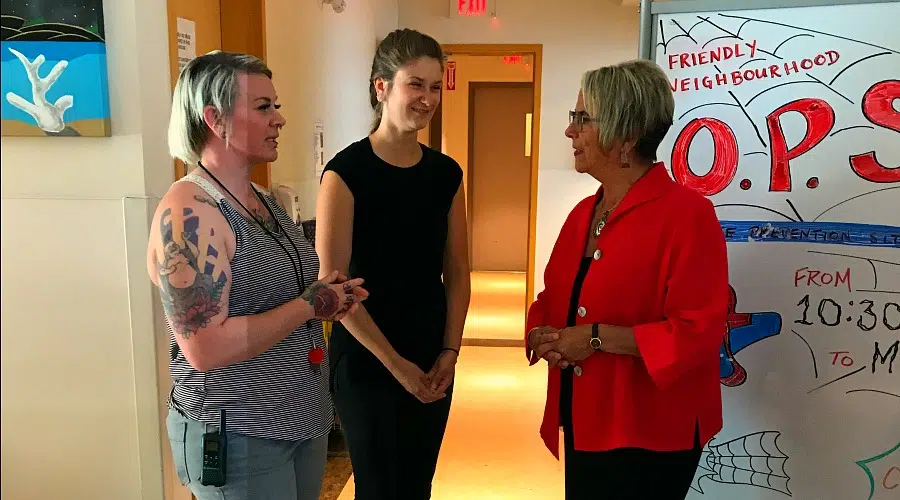
MLA says stigma about addictions must end to solve overdose crisis
NANAIMO — B.C.’s new mental health and addictions minister says of the many barriers facing those suffering with mental health issues and addictions, the stigma of being an addict is the most sizable.
MLA Judy Darcy visited Nanaimo Thursday as part of a tour meeting front line workers, stopping at the Snuneymuxw First Nation health centre, facilities in Brooks Landing and the overdose prevention site.
“These are our loved ones,” she told NanaimoNewsNOW about those who pass away from overdoses. “Every person who’s died in the overdose crisis has a family or friends who love them. Every single life is a tragedy, we can’t allow this to become normalized.”
She said one in five families is living with mental health issues and there’s an “enormous” number of families affected by addictions issues.


